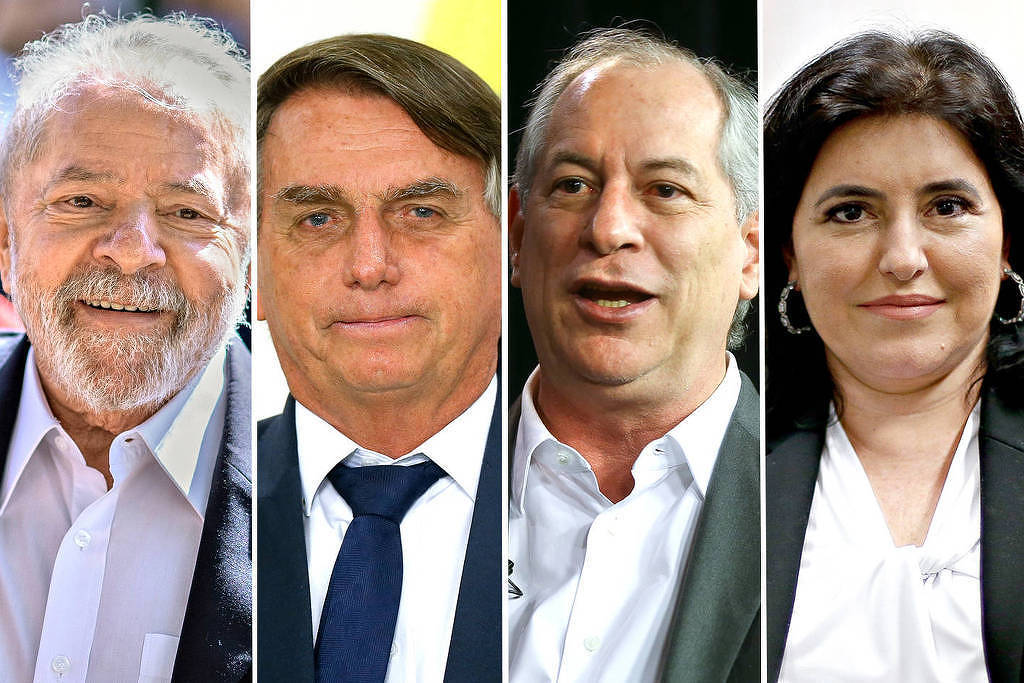Brazilians go to the polls this Sunday (2) in an unprecedented atmosphere of fear and violence in a presidential election. From assassinations of voters to threats to candidates, the controversy has replicated a pattern previously seen in municipal elections and signaled that political polarization had reached a new level.
“We have never reached such elections. In general, you see more violence in municipal elections, candidates for councilors. Beyond the violence against candidates, what’s new is this wave of gratuitous violence and intolerance of dissent,” says the CEO. from the Sous da Paz Institute, Carolina Ricardo.
Even before the official start of the campaign, cases of aggression were already accumulating. In July, a Bolsonarist police officer broke into a birthday party and shot and killed a PT gunman in Foz do Iguacu (PN).
That same month, a walk with Marcelo Freixo (PSB), a candidate for the RJ government, was abandoned after armed supporters of Bolsonarist state deputy Rodrigo Amorim (PTB) issued threats.
Fear of violence prompted the Federal Police to create the largest security scheme in history to protect presidential candidates. Lula’s campaign has even canceled travel, revised the structure of rallies and outlined a plan to prevent supporters from voting for fear of aggression.
“There were cases in Foz do Iguacu, Mato Grosso, Ceara, Santa Catarina. These are people who have not been at the center of the political debate,” says sociologist David Marquez, project coordinator for the Brazilian Public Security Forum. “People are now afraid to go out in a T-shirt, stick a sticker on a car, put a brooch in a backpack. They are afraid of being threatened or being drawn into conflict.”
In early September, a supporter of President Jair Bolsonaro (PL) admitted to stabbing a colleague in Mato Grosso following a political dispute in which the victim was defending Lula.
In September, a PT supporter in Santa Catarina killed, also stabbed, a man wearing a shirt that mentioned Bolsonaro. Police are investigating if there was a political motivation.
Last Thursday (29) in Brasilia, the car and house of Bolsonaro’s ex-wife, district candidate Ana Cristina Valle (PP-DF) were vandalized. She and her son, Jair Renan Bolsonaro, posted short videos of the incident on social media and offered political motivations for the attack.
A survey conducted by the Brazilian Public Security Forum in partnership with the Political Action Network for Resilience and commissioned by the Datafolha Institute found that 67.5% of respondents fear physical attack because of their political or party choice.
The fears of voters are shared by politicians. About 50 candidates have recently suffered some form of political violence and are in need of assistance or special security measures, according to PSOL — an acronym for adviser Marielle Franco, who was killed in 2018 as a result of an unsolved crime.
Civil society organizations Justiça Global and Terra de Direitos have been monitoring cases of political violence in Brazil since 2016. Justiça Global general coordinator Sandra Carvalho says she fears that fear of violence is intimidating candidates from already minority groups in politics, such as women and blacks, stressing that numbers have begun to point to an upward trend in 2019.
“Political violence is repeated in the history of the country, but we are already seeing an intensification of the campaign to elect the incumbent president. Since then, there has been an upward trend,” she says. “We are seeing campaigns by some segments that are much more timid for fear of being attacked in any way, a danger to the democratic process, because this can increasingly mean under-representation of certain segments.”
On Thursday (29) at a meeting with international observers, the chairman of the TSE (Supreme Electoral Court) Alexandre de Moraes said that justice will guarantee freedom and security in the elections.
To reduce the risk of violence, the court banned CACs (hunters, shooters and collectors) from carrying guns and ammunition between Saturday (1st) and Monday (3rd) and developed new text to ban mobile phones from entering cabins. .
“No wonder we got here this way. In addition to the complete ease of buying weapons, since more than 40 rules have facilitated this access, in recent years, a discourse has flared up about access to weapons, especially presidential weapons, ”says Carolina Ricardo.
The wave of violence also led the TSE to reach an agreement with the CBF (Brazilian Football Confederation). A giant inflatable electronic ballot box with the words “Peace in Elections” was installed on the field for seven games. The motto was shared by the leading football teams in the country.
David Marquez of the Brazilian Public Safety Forum says it is difficult to gauge the impact of the 2022 campaign in the next election. For him, the answer may lie in survey results.
“In 2018 in Sao Paulo you had [o ex-governador] Joao Doria says the police need to shoot to kill. In Rio de Janeiro [o ex-governador] Wilson Witzel said the police had to shoot him in the head. The public safety agenda was also very important to Bolsonaro. He spoke about the exclusion of lawlessness for police officers and the arming of society, ”says the sociologist.
“In all these cases, it’s about the fact that we need to use violence to make public policy, to control crime. And this, in some aspects, also goes through political relations, to political debate in general. What we will need this Sunday to see if this wave of aggression will be intensified again or if it will be stopped by the general vote.”
According to Carolina Ricardo of the Instituto Sou da Paz, the solution lies with democracy itself. “Institutions are responding. And the way for everyone is to come, vote, elect anyone who thinks they should be elected to show that democracy prevails and is stronger than specific instances of political violence.”















